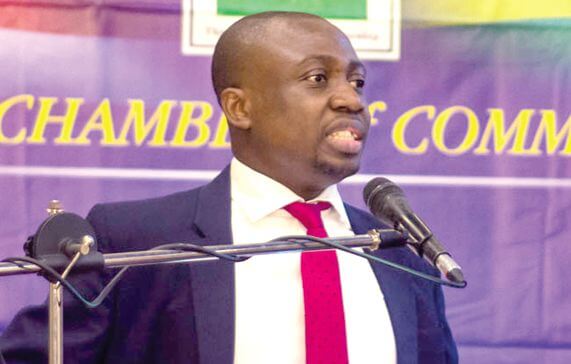A Partner at the PricewaterhouseCoopers, Mr Abeku Gyan-Quansah, has called on the Ghana Revenue Authority to come up with a credible system or benchmark for determining the value of properties in the country.
The valuing of properties, he said, could help the GRA generate more revenue in terms of property rates for the development of the country.
He says adds that the GRA, having instituted the benchmark, should also ensure that the general public was educated on how those values are determined for the purposes of property rate payments and how to conveniently pay them.
Property rate
Property rate is money paid on immovable property and in Ghana, it is collected annually by the Metropolitan, Municipal and District Assemblies (MMDAs) with the help of the GRA.
Again, property rate is levied annually by the local authorities on the estimated value of the property, depending on the classification of the area where the property is located.

The rates range from 0.5% to 3% and there are also different types of property tax, namely; property rates, ground rates and the actual property tax.
However, not many people in the country pay their property rate as they claim there is no commensurate value of the tax that they are required to pay and developments in their communities.
For instance, in May last year, the Residential Occupancy and Property Tax Arrears research presented to the Accra Metropolitan Assembly (AMA) indicated that only 20 per cent of property owners in capital pay their property rates.
Consequently, the findings of the study revealed that people evade filing of their property rates because they do not believe that their taxes were being put into good
Therefore, the survey stated that “when the AMA and other assemblies provide more social goods such as roads, drains, collection of garbage, police stations, schools and others, residents are happy to pay back in terms of property rates”.
Tax education
But speaking at the Graphic Business/Stanbic Bank Breakfast meeting held in Accra on Tuesday, February 18, 2020, Mr Gyan-Quansah further advised the GRA to ensure that people appreciate the value or need for the tax that they are being asked to pay.
“For example, if I’m in a particular locality and I always complain about the roads to my house and I am paying property rates and I don’t see anything being done with regards fixing those roads, then obviously you will have a lot of revolt”, he opined.
in addition to this, he says that the GRA could effectively ensure that more property owners pay their property rates if there was a law on property tax, adding that what pertained in the regulations was property rates, which are enforced by the MMDAs.
“The general perception has always been as though we have anything in our law called property tax, we don’t. The laws administered by the GRA does have anything called property tax”, he added.
On tax exemptions
Answering questions on whether the country was benefiting from the numerous tax exemptions that it is doling out to corporations, Mr Gyan-Quansah, says that he believes the country was benefiting from tax exemptions
However, he added that it was up to the Parliament of Ghana to determine whether the country was indeed benefiting from those decisions.
“The question is are our Parliamentarians doing the right thing? My default answer will yes until I have reasons to doubt. So are they benefiting from the exemptions, I would say yes because that is Parliament has been approving them”, he said.
Moreover, he said the IMF had recommended the formulation of a law, stating in clear terms the procedures for issuing out tax exemptions for everybody to read.
In line with this, he said, a bill for that law had been put before Parliament since March last years, waiting for approval.







